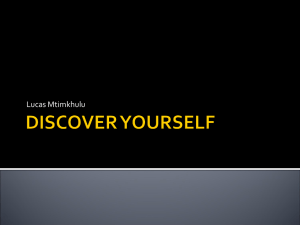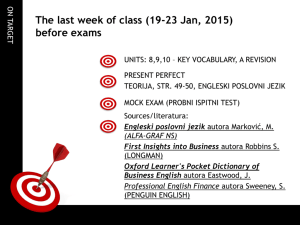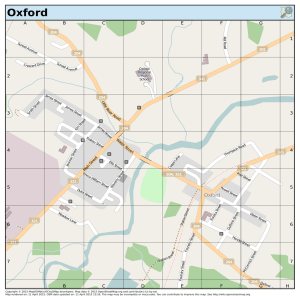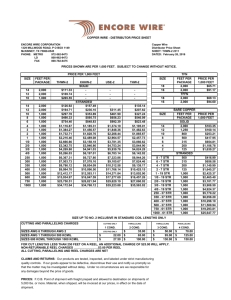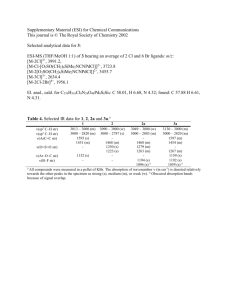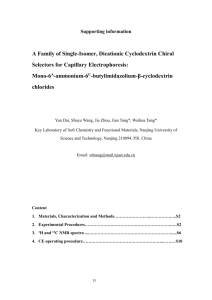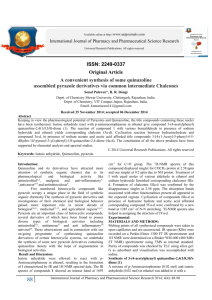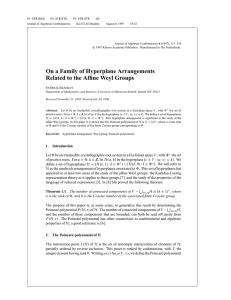Digital and Social Media Marketing Bachelor course
advertisement
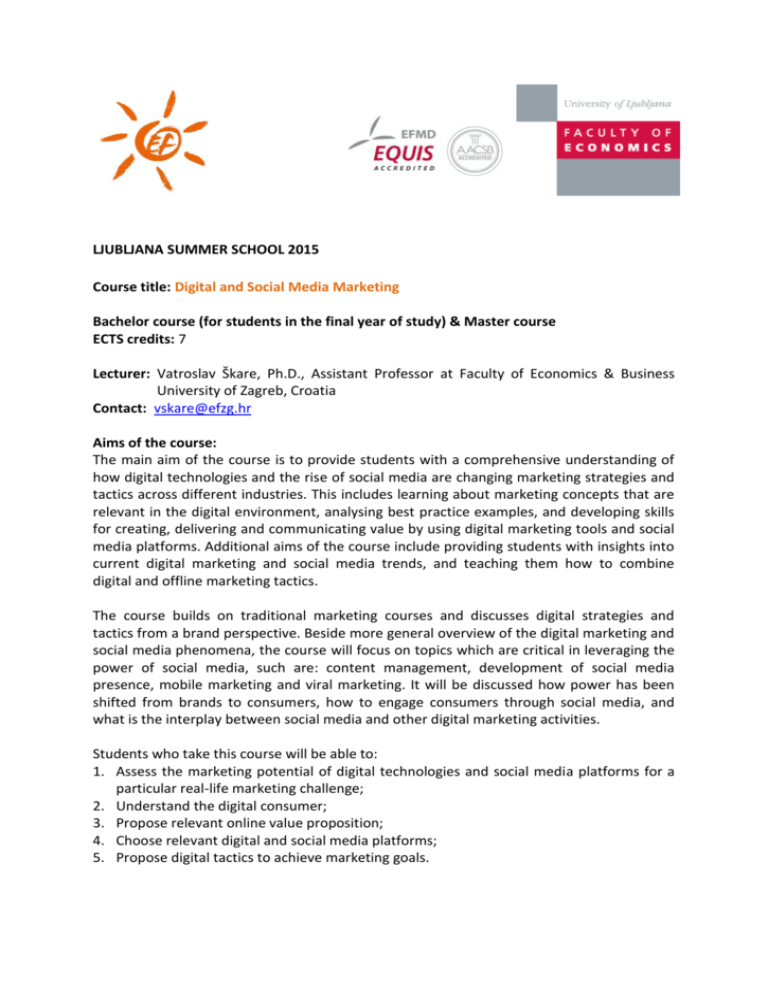
LJUBLJANA SUMMER SCHOOL 2015 Course title: Digital and Social Media Marketing Bachelor course (for students in the final year of study) & Master course ECTS credits: 7 Lecturer: Vatroslav Škare, Ph.D., Assistant Professor at Faculty of Economics & Business University of Zagreb, Croatia Contact: vskare@efzg.hr Aims of the course: The main aim of the course is to provide students with a comprehensive understanding of how digital technologies and the rise of social media are changing marketing strategies and tactics across different industries. This includes learning about marketing concepts that are relevant in the digital environment, analysing best practice examples, and developing skills for creating, delivering and communicating value by using digital marketing tools and social media platforms. Additional aims of the course include providing students with insights into current digital marketing and social media trends, and teaching them how to combine digital and offline marketing tactics. The course builds on traditional marketing courses and discusses digital strategies and tactics from a brand perspective. Beside more general overview of the digital marketing and social media phenomena, the course will focus on topics which are critical in leveraging the power of social media, such are: content management, development of social media presence, mobile marketing and viral marketing. It will be discussed how power has been shifted from brands to consumers, how to engage consumers through social media, and what is the interplay between social media and other digital marketing activities. Students who take this course will be able to: 1. Assess the marketing potential of digital technologies and social media platforms for a particular real-life marketing challenge; 2. Understand the digital consumer; 3. Propose relevant online value proposition; 4. Choose relevant digital and social media platforms; 5. Propose digital tactics to achieve marketing goals. Course syllabus: Day 1: Day 2: Introduction to digital and social media marketing How digital technologies are transforming marketing; Key terms and concepts; Distinctive properties of digital marketing Digital media landscape Paid-Owned-Earned media; Social media platforms; Digital audience measurement New role of the consumer in digital environment Permission marketing; Prosumers; Co-creation; Crowdsourcing; Online consumer behaviour models; Digital communities Day 3: Strategic approach to digital and social media marketing Digital marketing strategy framework; Digital analytics; Key performance indicators Day 4: Digital branding Shift of power from brands to consumers; Digital brand positioning; Customer engagement; Anti-Branding Value in digital environment Online value proposition; Creating, delivering and communicating value Day 5: Content strategy Content mission; Choosing relevant content types; Content development; User generated content; Curated content Day 6: Developing and managing digital and social media presence Choosing relevant digital and social media platforms; Designing user experience; Content distribution; Managing interactions Day 7: The interplay between social media marketing and other digital communication activities Search-engine optimization; PPC advertising; Display advertising; Direct email and newsletters Day 8: Mobile marketing Mobile platforms; Mobile web and applications; Mobile commerce and show rooming; Location-based services Day 9: Viral marketing Benefits of viral marketing; Viral content development and deployment; Digital word-of-mouth Integrating digital and offline marketing activities Organizing digital and social media marketing activities; Outsourcing Day 10: Team presentations: Social Media Marketing Strategy (course assignment) Bibliography: Chaffey, D., Ellis-Chadwick, F. (2012) Internet Marketing: Strategy, Implementation and Practice, 5th Edition. Prentice Hall. Deighton, J., Kornfeld, L. (2009) Interactivity's Unanticipated Consequences for Marketers and Marketing, Journal of Interactive Marketing 23 (1), str. 4-10. Krishnamurthy, S., Umit Kucuk, S. (2009) Anti-branding on the internet. Journal of Business Research, 62, str. 1119-1126. Laffey, D. (2007) Paid search: The innovation that changed the Web. Business Horizons, 50, str. 211-218. Mangold, W. G., Faulds, D. J. (2009) Social media: The new hybrid element of the promotion mix, Business Horizons, 52, str. 357-365. Rangaswamy, A., Giles, C. L., Seres, S. (2009) A Strategic Perspective on Search Engines: Tought Candies for Practicioners and Researchers, Journal of Interactive Marketing, 23 (1), str. 49-60. Simmons, G. (2008) Marketing to postmodern consumers: introducing the internet chameleon. European Journal of Marketing, 42 (3/4), str. 299-310. Simmons, G.J. (2007) i-Branding: developing the internet as a branding tool. Marketing Intelligence & Planning, 25 (6), str. 544-562. Smith, T. (2009) The social media revolution. International Journal of Market Research, 51 (4), str. 559-561. Smutkupt, P., Krairit, D., Esichaikul, V. (2010) Mobile marketing: Implications for Marketing Strategies. International Journal of Mobile Marketing, 5(2), str. 126-139. Teaching methods: The course will utilise a combination of teaching methods including lectures, in-class discussions, workshops, student presentations and readings. Student participation and interaction are highly encouraged and expected. Prerequisites: Passed exam in the basic marketing course (Principles of Marketing, Introduction to Marketing, Marketing 1, Marketing Management, or similar course) Examination methods: Assessment for this course will have three components: 1. Course assignment: Social Media Marketing Strategy (30%) Student will work in teams and their task will be to develop and present a social media marketing strategy for a given company/organization/cause. Social media marketing strategy has to deal with the following issues: analysis of current social media use by the company/organization/cause; social media marketing goals setting; development of digital consumer personas; choosing relevant social media platforms; writing guidelines for content development and social media presence management. Detailed course assignment guidelines will be provided during the first lecture day. 2. In-class participation (20%) Proactive approach in asking questions and giving comments is highly expected. Quality of the ideas will be honored. 3. Written exam (50%) The exam will consist of multiple choice questions, short answer questions, and problem-solving questions. Note: This course is officially accredited at the Faculty of Economics, University of Ljubljana as the course Electronic marketing (ECTS: 7).
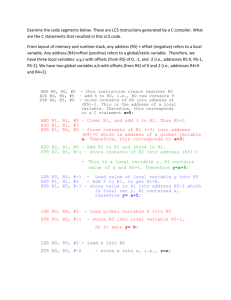
![[#PF-1998] subordintated taxa of Xenillidae](http://s3.studylib.net/store/data/007613529_2-36b265815b5d8ce7df1b35bae74e1254-300x300.png)
